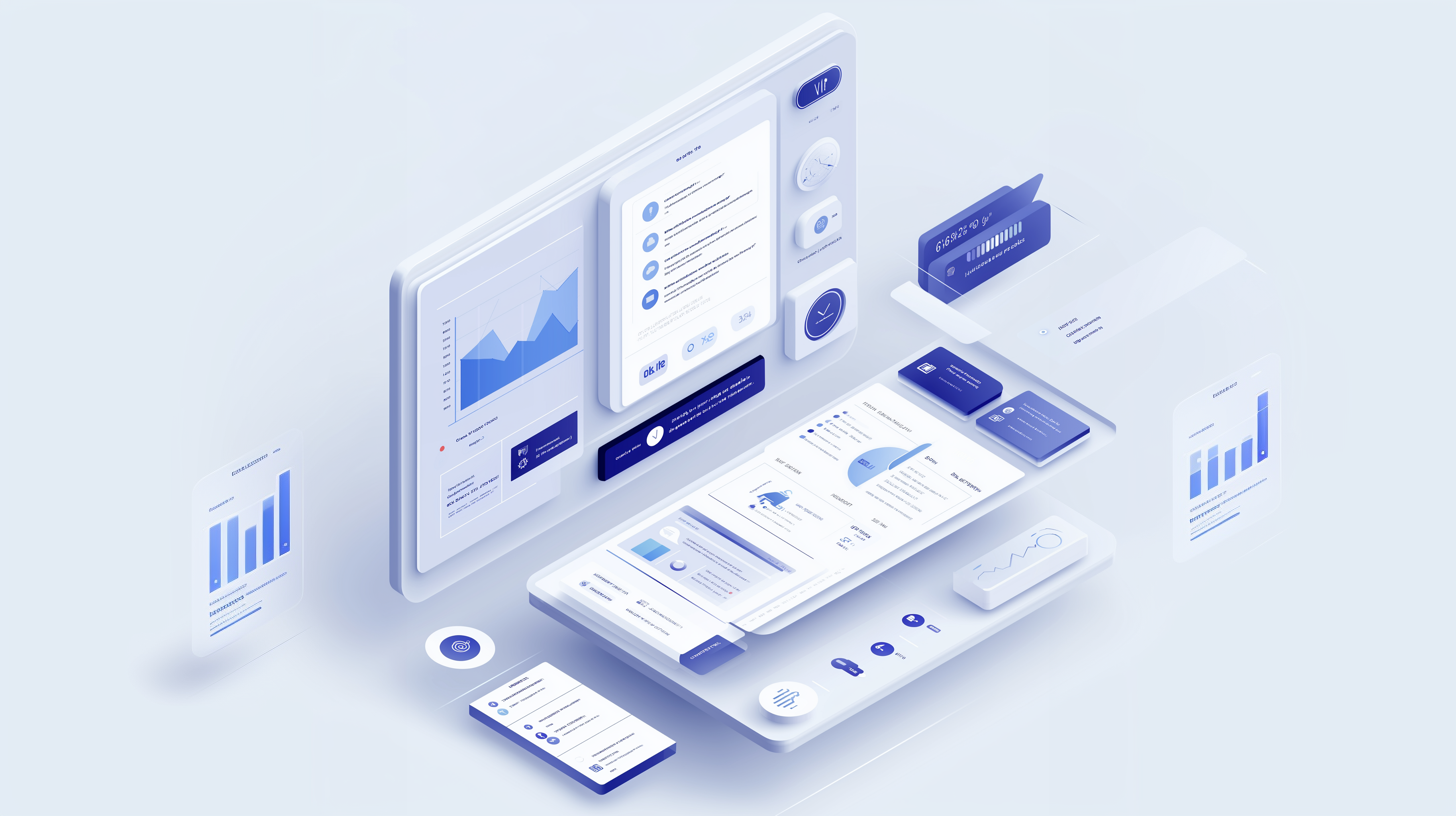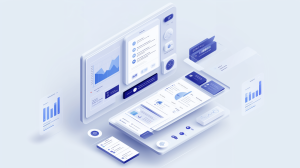This blogpost corresponds to Chapter 2.2 – Basic Information of CRM Module. It is part of Unit 2 – Customer Relationship Management with ERP System of the project training curricula. You can check the full structure of the training curricula here. Alternatively, you can learn more about the project by accessing the homepage.
Thus, ERP SW: Introduction to Enterprise Resource Planning (ERP) Software for VET Teachers is a EU-funded project (reference code: 2023-1-DE02-KA210-VET-000150687). Xient GmbH coordinates the project in partnership with L4Y Learning For Youth GmbH and Hadımköy Mesleki ve Teknik Anadolu Lisesi.
To keep up to date, follow us on X, as well as Instagram social media pages. Additionally, you can also follow our follow our YouTube Channel.
Learning Objectives
By the end of this article, ICT VET trainers will be able to:
- Understand the fundamental components of CRM modules and their role in modern business environments.
- Identify the core functionalities and real-life use cases of CRM within ERP systems across various industries.
- Integrate CRM module education into vocational training curricula effectively using practical tools and scenarios.
- Support the development of employable digital skills among VET trainees in the field of ERP software and customer relationship management.
Basic information of CRM module: Introduction
In today’s rapidly digitalising business landscape, Enterprise Resource Planning (ERP) systems have indeed become essential for streamlining and integrating processes across departments. Among these systems, a critical element is the Customer Relationship Management (CRM) module. Moreover, this component empowers businesses to better understand, manage, and engage with customers through data-driven strategies. As a result, it ultimately enhances customer satisfaction and loyalty.
For ICT VET (Vocational Education and Training) teachers, staying updated on CRM module functionalities within ERP systems is vital. Moreover, it equips them to train students on tools that improve organisational performance, support customer-centric strategies, and boost employability. As ERP software continues to evolve, CRM modules offer real-world, job-ready applications that help bridge the gap between education and also industry, preparing students for dynamic roles in sales, marketing, and service operations.
In-Depth Explanation of Key Components
CRM Modules: Core Functionalities
To begin with, CRM modules are designed to support businesses in managing their customer lifecycle. Specifically, these modules provide a centralised system that enhances coordination between teams and enables personalised, proactive engagement with clients. In particular, the three main functions include:
Customer Data Management
CRM modules centralise and store detailed customer information, making it accessible across departments. This includes contact details, purchase history, preferences, communication logs, and feedback. Such a system allows businesses to personalise interactions and make informed decisions based on real-time data insights.
For example, HubSpot CRM provides a unified dashboard where sales, marketing, and customer service teams can access client information in real time, improving service speed, relevance, and continuity (HubSpot, 2023).
Sales Automation
Sales automation tools streamline the sales process by automating repetitive tasks such as lead scoring, email follow-ups, activity logging, and pipeline monitoring. This improves efficiency, minimises human error, and enables sales reps to focus on building relationships.
Microsoft Dynamics 365, for instance, uses AI-driven features to guide sales reps through their pipelines, suggesting next best actions based on customer behaviour and purchase patterns (Investopedia, 2023).
Marketing Campaign
Marketing Campaign Tracking CRM systems also allow businesses to monitor and optimise their marketing campaigns across various channels. Campaign tracking features collect metrics on engagement, conversions, ROI, and also customer segmentation.
Moreover, platforms like ActiveCampaign provide advanced tools that automate targeted messaging based on customer interactions, preferences, and lifecycle stage, increasing campaign effectiveness and customer retention (ActiveCampaign, 2023).
Usage Areas of CRM Modules within ERP Systems
Moreover, the integration of CRM modules within ERP systems expands their functionality beyond standalone customer relationship management. Through this integration, these systems allow seamless flow of customer data across departments—sales, marketing, finance, inventory, and also support—thereby facilitating strategic decision-making and operational alignment.
In terms of lead management, CRM modules help identify, score, and also nurture leads using automated workflows and AI-enhanced analytics. Consequently, the software prioritises high-value prospects and tracks their journey through the sales funnel, ensuring that sales teams focus on the most promising opportunities.
A study by Business News Daily (2023) reports that companies using CRM for lead management see a 30% increase in qualified leads, improving conversion rates and reducing sales cycle duration.
Opportunity Tracking Sales opportunities are tracked from initial contact through to final conversion. Features such as deal stage tracking, forecasting tools, and real-time dashboards offer sales teams greater visibility and control over active pipelines.
According to NetSuite (2023), ERP-integrated CRM systems enable businesses to manage deals efficiently while aligning sales forecasts with inventory and finance systems. This ensures better resource planning, timely deliveries, and also customer satisfaction.
Customer Service CRM modules store customer service histories, feedback, ticket resolutions, and also communication logs. This creates consistency in support experiences and ensures that customer concerns are addressed effectively and also efficiently.
For instance, Zoho CRM’s omnichannel support capabilities exemplify this, with integrations across chat, email, phone, and social platforms. As a result, this unified communication approach ensures no customer query is missed, and support teams always have full context (Zoho, 2023).
Basic information of CRM module: Success Stories and Analogies
Success Stories
Microsoft Dynamics 365 Dynamics 365 stands out for its AI-powered insights and 360-degree customer view. It offers predictive analytics, real-time dashboards, and tailored recommendations that improve customer engagement and also strategic planning.
Success: A manufacturing firm adopted Dynamics 365 to automate its lead nurturing process, resulting in a 25% increase in conversion rates and also a 15% boost in customer retention (Investopedia, 2023). Analogy: Like a personal assistant, it offers smart suggestions and timely reminders to improve every customer interaction.
Moreover, Zoho CRM allows businesses to track and manage communications across multiple platforms from a single interface. This ensures continuity in customer engagement and enhances personalisation through contextual interactions.
Success story: A logistics startup notably reported improved client satisfaction scores and also faster response times after implementing Zoho’s unified communication tools (Semrush, 2023). In other words, think of it as a universal translator—ensuring every message is understood clearly across different media.
ActiveCampaign leverages machine learning to automate and also personalise communication based on real-time customer behaviour, preferences, and interactions.
Success story: A mid-sized e-commerce business significantly increased repeat purchases by 40% by using ActiveCampaign’s behavioural triggers and targeted email campaigns (ActiveCampaign, 2023). To illustrate, think of it like a tailor—it customises every message to fit each customer’s unique needs perfectly.
Additional Analogies
- Lead Management: CRM is like a metal detector, scanning through countless prospects to uncover high-value leads.
- Opportunity Tracking: Think of CRM as a GPS, guiding your team step-by-step from cold contact to closed deal.
- Customer Service: CRM functions as a library, storing all customer interactions for quick reference and efficient issue resolution.
- Marketing Campaigns: A CRM is like a conductor in an orchestra, coordinating every instrument (email, social media, ads) for harmonious outreach.
Resources for Learning
Here are some essential resources ICT VET trainers can use to stay updated and train their students:
- HubSpot Academy (free CRM certifications and tutorials)
- Microsoft Learn (Dynamics 365 CRM training modules)
- Zoho CRM Resources (webinars, documentation, and user guides)
- Coursera & edX (CRM and ERP-related courses from leading institutions)
- ActiveCampaign Learning Hub (campaign automation training)
These resources are ideal for self-paced learning or for inclusion in teaching syllabi and lab exercises. They help trainers design engaging lessons with hands-on activities that mirror industry scenarios.
Basic information of CRM module: Expert Advice
Industry professionals consistently stress the value of integrating CRM knowledge in vocational education:
“Incorporating CRM training into VET programmes is no longer optional. It’s foundational for preparing students for the digital workforce.” — Paul Greenberg, Author of CRM at the Speed of Light (Greenberg, 2020)
“The future of CRM lies in integration. When CRM modules are embedded into ERP systems, businesses gain a full-spectrum view of their operations and customers.” — Denis Pombriant, Founder, Beagle Research Group (CRM Buyer, 2021)
“CRM adoption leads to significant ROI, but only when businesses leverage its full suite of features—from marketing to post-sale support.” — Kate Leggett, VP and Principal Analyst, Forrester Research (Forrester, 2022)
These expert insights underscore the necessity for VET educators to focus on CRM functionalities within ERP education. By emphasising CRM module training, teachers equip students with the skills required to drive customer satisfaction, operational excellence, and business growth.
Conclusion and Call to Action
CRM modules are more than digital customer databases—they are powerful, strategic tools that enable businesses to enhance customer engagement, drive sales, personalise marketing, and build long-term loyalty. For VET trainers, integrating CRM education into their teaching not only equips students with in-demand digital competencies but also prepares them to contribute meaningfully to real-world business success.
Basic information of CRM module: Call to Action:
If you’re an ICT VET trainer, begin integrating CRM module training into your curriculum today. Use free tools like HubSpot, Zoho CRM, and ActiveCampaign for classroom demonstrations, and guide students through practical scenarios using real-life data and simulations. Encourage project-based learning and role plays that mimic real customer interactions. By doing so, you’ll not only increase your own teaching effectiveness but also empower your students to thrive in a competitive and evolving job market.
Reference Section
- ActiveCampaign. (2023). 30 CRM statistics to increase your sales. Retrieved from https://www.activecampaign.com/blog/30-crm-statistics-to-increase-your-sales
- Business News Daily. (2023). CRM lead management. Retrieved from https://www.businessnewsdaily.com/16066-crm-lead-management.html
- HubSpot. (2023). CRM examples. Retrieved from https://blog.hubspot.com/sales/crm-examples
- Investopedia. (2023). Customer Relationship Management (CRM). Retrieved from https://www.investopedia.com/terms/c/customer_relation_management.asp
- NetSuite. (2023). CRM use cases. Retrieved from https://www.netsuite.com/portal/resource/articles/crm/crm-use-cases.shtml
- Semrush. (2023). CRM examples and use cases. Retrieved from https://www.semrush.com/blog/crm-examples/
- Zoho. (2023). CRM help documentation. Retrieved from https://www.zoho.com/crm/help/
- Greenberg, P. (2020). CRM at the Speed of Light (4th ed.). McGraw-Hill.
- Forrester. (2022). Customer Relationship Management Insights. Retrieved from https://go.forrester.com/blogs/category/customer-relationship-management/
- CRM Buyer. (2021). The value of CRM-ERP integration. Retrieved from https://www.crmbuyer.com/







